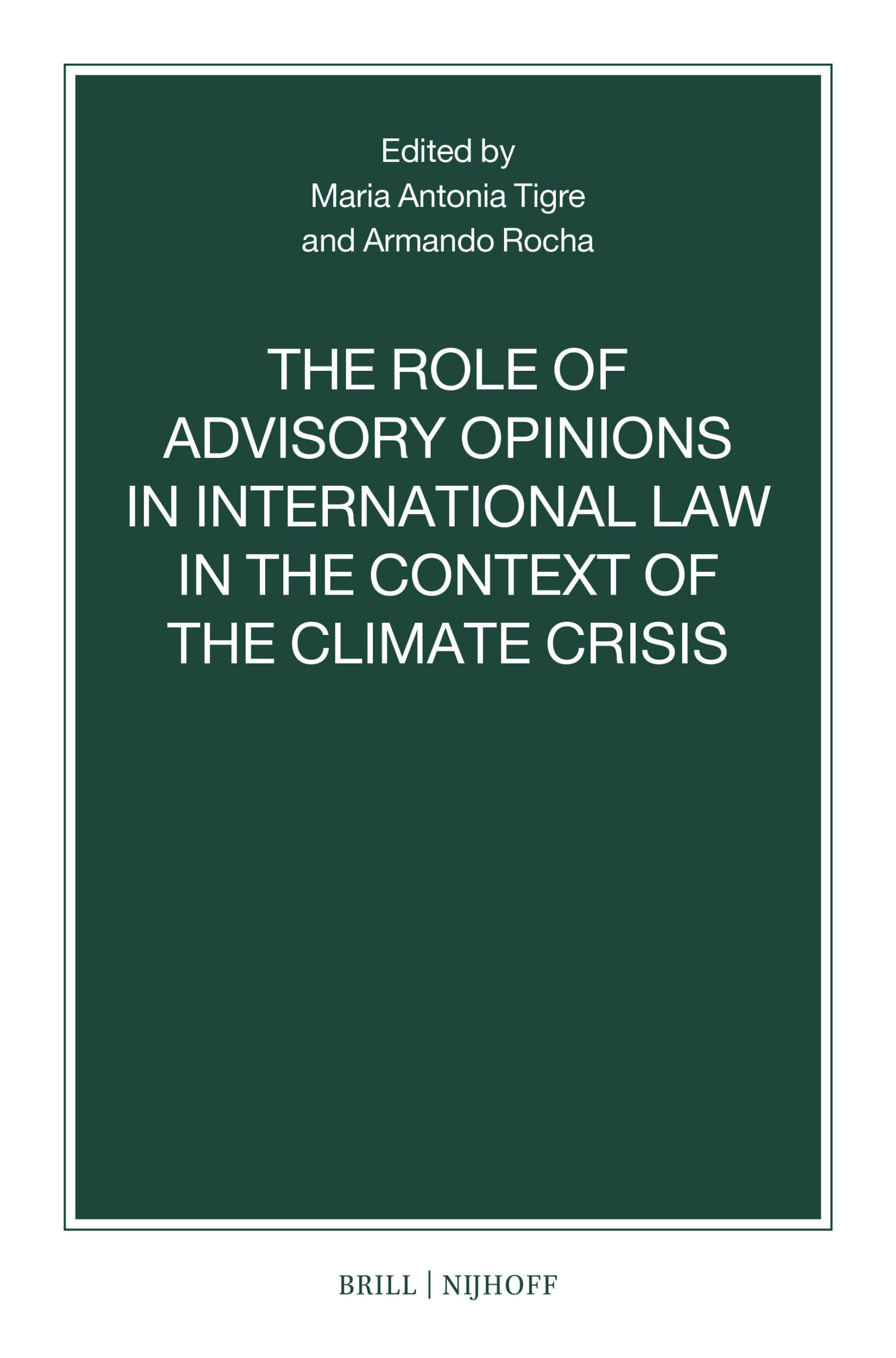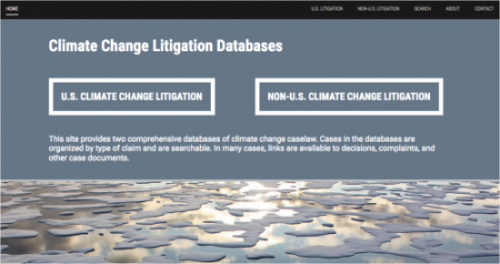 As the Inter-American Court of Human Rights (IACtHR) prepares to release its advisory opinion on climate change on July 3, 2025—joining earlier decisions from the International Tribunal for the Law of the Seas (ITLOS) and the European Court of Human Rights (ECtHR), and in anticipation of the International Court of Justice (ICJ)’s advisory opinion—The Role of Advisory Opinions in International Law in the Context of the Climate Crisis arrives at precisely the right moment.
As the Inter-American Court of Human Rights (IACtHR) prepares to release its advisory opinion on climate change on July 3, 2025—joining earlier decisions from the International Tribunal for the Law of the Seas (ITLOS) and the European Court of Human Rights (ECtHR), and in anticipation of the International Court of Justice (ICJ)’s advisory opinion—The Role of Advisory Opinions in International Law in the Context of the Climate Crisis arrives at precisely the right moment.
Edited by Maria Antonia Tigre and Armando Rocha, and published by Brill as part of the Nijhoff Law Specials series, the book is the first to provide a comprehensive and comparative analysis of the wave of climate-related advisory proceedings now transforming international law. It examines the jurisprudential potential of these opinions to clarify states’ obligations under the global climate change regime, human rights law, and the law of the sea. The book is available open access here.
A Turning Point for Climate Justice and Global Governance
The book situates these developments in a pivotal moment for global environmental governance. As the introduction explains, after years of stalled negotiations and uneven implementation of climate commitments, the turn to international courts reflects a deeper structural shift in how legal systems respond to the climate crisis. Advisory opinions offer not only legal clarification but also an opportunity to foster intergenerational and inter-court dialogue, anchor domestic and regional climate action, and provide normative coherence across fragmented regimes. The introduction situates the three ongoing proceedings (ICJ, ITLOS, IACtHR) within this broader trend of strategic legal innovation.
Structure and Key Contributions
The book is divided into three sections:
- Advisory Opinions as Instruments of Climate Governance – This section lays the groundwork for how advisory opinions can help to resolve legal uncertainty in fragmented legal regimes. It examines jurisdictional innovation, treaty interpretation, and systemic legal dialogue among courts, including the ICJ, ITLOS, IACtHR, and the African Court on Human and Peoples’ Rights (AfCtHPR).
- Voices and Participation in Advisory Opinion Proceedings – This section focuses on how diverse actors—states, youth, civil society, Indigenous communities—have engaged with the advisory process. It also explores how storytelling and inclusive participation expand the legitimacy and resonance of legal proceedings.
- The Lasting Impact of Advisory Opinions – The final section examines how advisory opinions influence domestic courts, inspire new litigation, and embed climate obligations in legal systems across jurisdictions.
The book concludes by revisiting the idea of advisory opinions as potential “Rosetta Stones” for international climate law. While non-binding, their interpretive weight, normative clarity, and global visibility may trigger significant ripple effects in litigation, policymaking, and treaty development. As the conclusion emphasizes, the true legacy of these opinions will depend on how courts frame their reasoning, and how actors—particularly those in the Global South—take up their findings to mobilize change.
A Diverse and Global Scholarly Effort
The volume brings together contributions from leading voices in international environmental law, treaty interpretation, and human rights advocacy. The authors include Rita Guerreiro Teixeira, Patrícia Galvão Teles, Alice Ollino, Irini Papanicolopulu, Melissa Stewart, Susan Ann Samuel, Jorge Alejandro Carrillo Bañuelos, Dina Lupin, Ruth Nekura, Antoine De Spiegeleir, Miriam Cohen, Austyn Campbell, Claire Robertson, Eran Sthoeger, Harjeevan S. Narulla, Rohan A. Nanthakumar, Lea Main-Klingst, Sophie Marjanac, Gastón Medici-Colombo, and the editors themselves, Armando Rocha and Maria Antonia Tigre. Together, their work reflects a truly international conversation on the future of law in the face of planetary crisis.
We are deeply grateful to all contributors and our institutional partners, including the Sabin Center for Climate Change Law and the Católica University Lisbon School of Law, for their support of this endeavor.
The Role of Advisory Opinions in International Law in the Context of the Climate Crisis is now available in print and digital formats through Brill, Amazon, and major academic retailers. Open access, made possible through the support of the Lisbon School of Law, is available here and here.
Dr. Maria Antonia Tigre is the Director of Global Climate Litigation at the Sabin Center for Climate Change Law at Columbia Law School.
-
Maria Antonia Tigre
-
Maria Antonia Tigre
-
Maria Antonia Tigre
-
Maria Antonia Tigre
-
Maria Antonia Tigre
-
Maria Antonia Tigre
-
Maria Antonia Tigre
-
Maria Antonia Tigre
-
Maria Antonia Tigre
-
Maria Antonia Tigre
-
Maria Antonia Tigre
-
Maria Antonia Tigre
-
Maria Antonia Tigre
-
Maria Antonia Tigre
-
Maria Antonia Tigre
-
Maria Antonia Tigre
-
Maria Antonia Tigre
-
Maria Antonia Tigre
-
Maria Antonia Tigre
-
Maria Antonia Tigre
-
Maria Antonia Tigre
-
Maria Antonia Tigre





